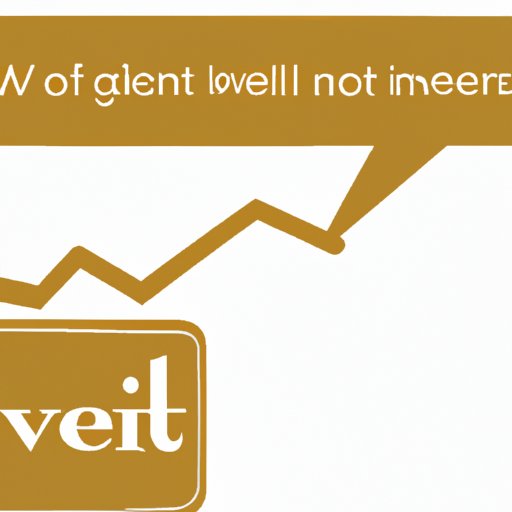Introduction
Investing in oil has become increasingly popular in recent years as oil prices have fluctuated. But is now a good time to invest in oil? In this article, we will explore the potential benefits and risks associated with investing in oil and discuss whether now is a good time to invest in the commodity.

Definition of Investing in Oil
Investing in oil refers to buying shares of oil companies or trading futures contracts for crude oil. Investors may also buy exchange-traded funds (ETFs) that track the performance of oil prices. Each of these investment strategies carries its own risk and reward profile.

Overview of the Current Oil Market and Its Future Outlook
According to the International Energy Agency, demand for oil is expected to grow by 1.1 million barrels per day in 2021. This is due in part to increased economic activity in developing countries such as India and China. At the same time, supply disruptions from OPEC+ (Organization of the Petroleum Exporting Countries plus Russia and other non-OPEC countries) have kept prices relatively steady.
Oil prices have been volatile in recent years, but experts are predicting that prices could rise in the coming months and years. According to a report from Goldman Sachs, “We expect Brent crude oil prices to reach $70/bbl in 2021 as large-scale production cuts take hold and global oil demand continues to recover.”
Benefits of Investing in Oil Now
Investing in oil now could provide investors with potential long-term profits. As demand for oil grows, so too does the potential for higher prices. Additionally, the entry costs for investing in oil are relatively low, making it accessible to many investors.
Investing in oil can also provide investors with diversification benefits. Oil investments can be used to help balance out portfolios that are heavily weighted towards stocks or bonds. By diversifying their portfolios, investors can reduce their overall risk.

Reasons Why Oil Prices May Rise
The price of oil is driven by a variety of factors, including economics, politics, and technology. Here are three reasons why oil prices may rise in the coming years:
- Increased demand from developing countries: As developing countries such as India and China continue to grow, they will need more energy, which will drive up the demand for oil.
- Improved industry performance: Oil companies are becoming more efficient in their production processes, which could lead to higher profits and higher prices.
- Political instability in oil-producing countries: Political unrest in oil-producing countries such as Venezuela and Iran could cause supply disruptions, leading to higher prices.
Risks Involved with Investing in Oil
The potential rewards of investing in oil come with some risks. One of the biggest risks is the volatility of oil prices. Oil prices can fluctuate dramatically, which can lead to losses for investors if they don’t know when to buy and sell. Supply disruptions can also cause prices to spike or drop suddenly.
Investing in oil can also have environmental implications. The production of oil emits greenhouse gases, which contribute to climate change. Investing in oil can also have negative impacts on local communities and ecosystems.
Alternatives to Investing in Oil
If you’re looking for an alternative to investing in oil, there are several options available. Investing in renewable energy sources such as solar and wind power is one option. Investing in alternative fuels such as biodiesel is another option. And finally, investing in other commodities such as gold or copper can provide a more stable source of returns.
Conclusion
Investing in oil now can provide investors with potential long-term profits and diversification benefits. However, there are also risks involved, such as volatility and environmental concerns. If you are looking for an alternative to investing in oil, there are several options available, including investing in renewable energy sources, alternative fuels, and other commodities.
Ultimately, whether or not now is a good time to invest in oil depends on your individual goals and risk tolerance. If you do decide to invest in oil, make sure you understand the risks and research the market thoroughly before making any decisions.
(Note: Is this article not meeting your expectations? Do you have knowledge or insights to share? Unlock new opportunities and expand your reach by joining our authors team. Click Registration to join us and share your expertise with our readers.)
